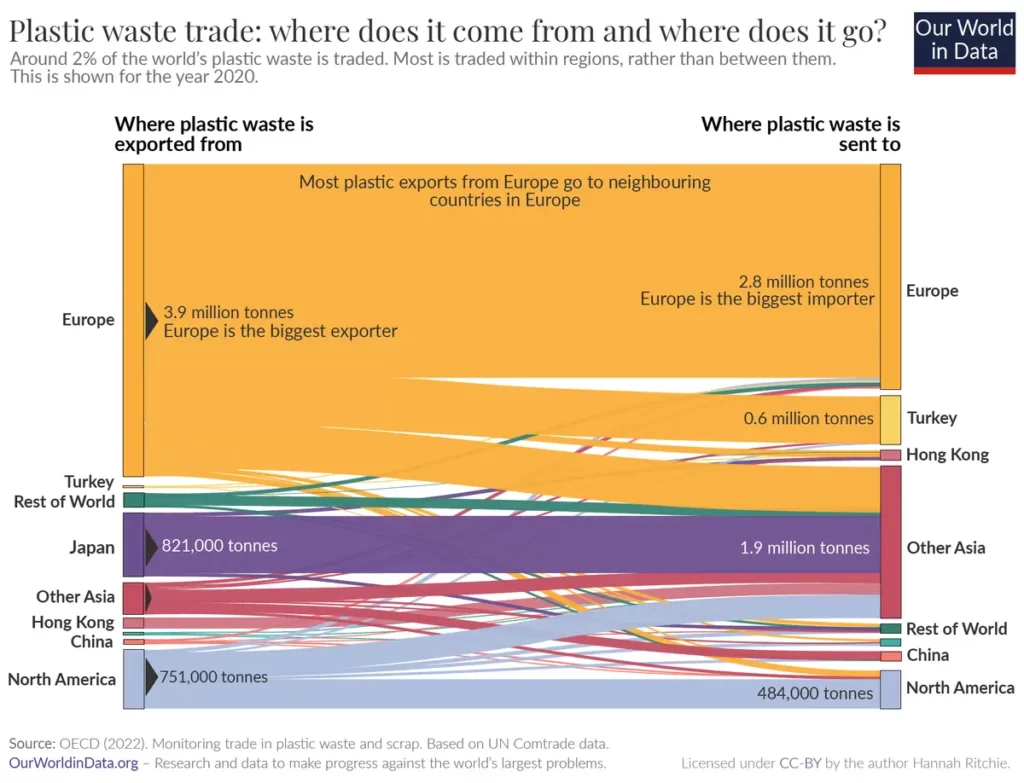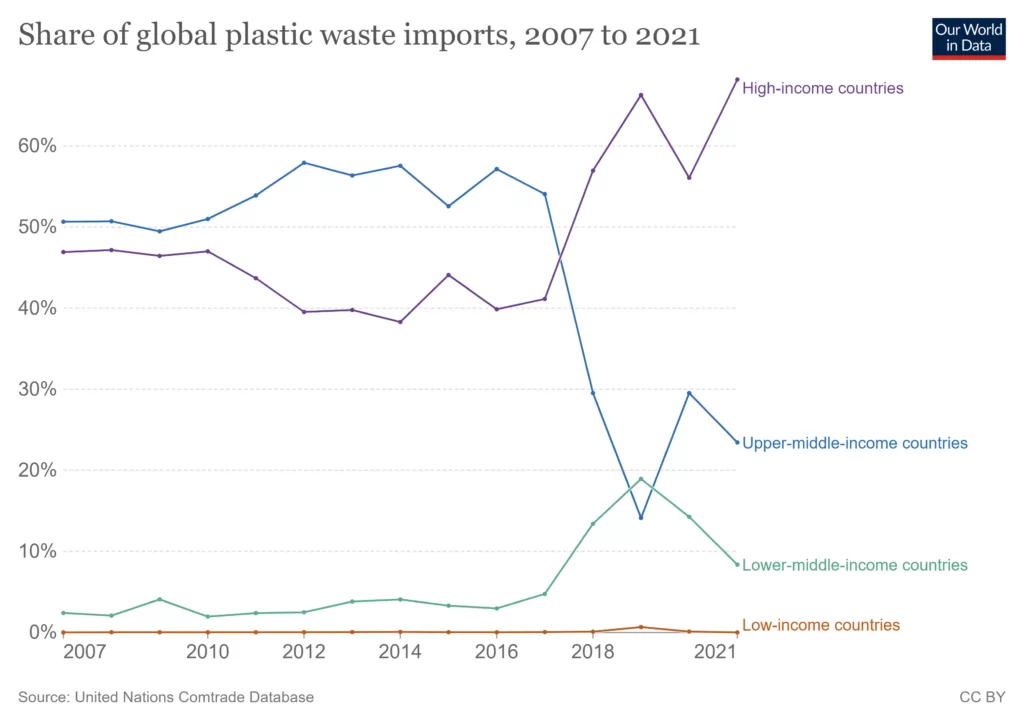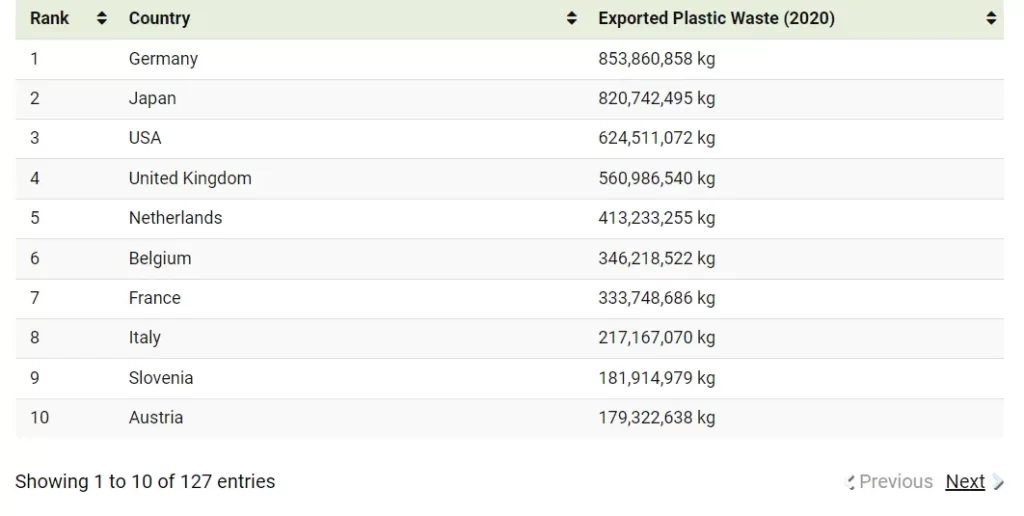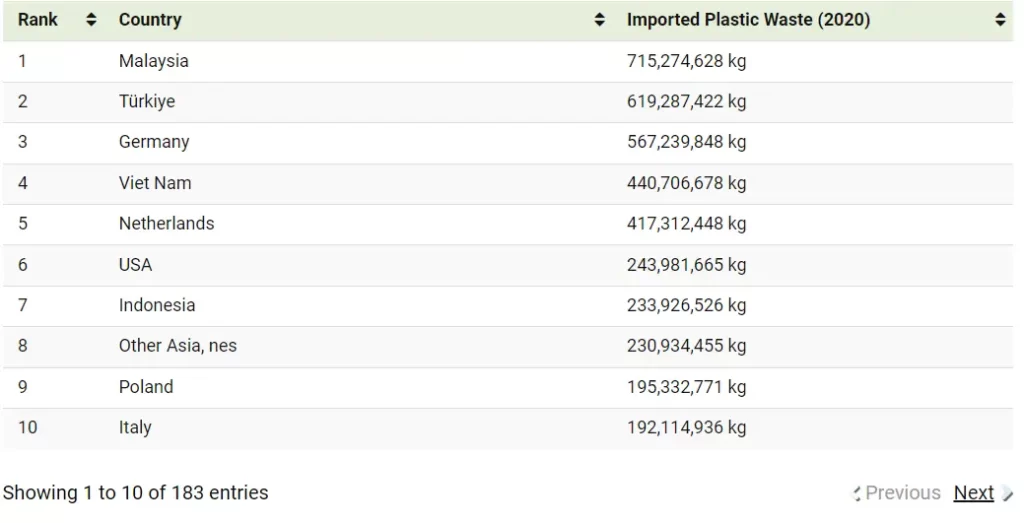In een wereld die worstelt met milieuproblemen, staat het probleem van wereldwijd plastic afval centraal. Elk jaar produceren landen wereldwijd maar liefst 350 miljoen ton plastic afval. Dit aantal is duizelingwekkend, maar wat nog zorgwekkender is, is dat slechts een fractie van dit afval wordt gerecycled. Slechts 2% ervan wordt internationaal verhandeld.
The Scale of Global Plastic Waste
The enormity of global plastic waste is equivalent to over 10 million fully loaded garbage trucks. Most of this waste ends up either being incinerated or sent to landfills, contributing to pollution in our air, land, and oceans.
 The Intricacies of International Trade in Plastic Waste
The Intricacies of International Trade in Plastic Waste
Though most plastic waste is managed within countries, some is exported to manage emissions more cost-effectively and to ease the burden on local recycling facilities. On the flip side, importing recycled plastics offers industries a cheaper alternative to newly manufactured plastics. This trade has even been found to positively impact the economic growth of many low-income countries, albeit under the right circumstances.
 The Changing Landscape of Plastic Waste Trade
The Changing Landscape of Plastic Waste Trade
Europe leads the pack in plastic waste exports, accounting for nearly 80% of the world’s traded plastic waste. Germany is the world’s largest exporter, followed by Japan and the United States. On the receiving end, Malaysia and Türkiye have emerged as the world’s largest plastic waste importers.
The Role of International Treaties
The Basel Convention, signed by 187 nations, aims to control the transboundary movements of hazardous wastes. It restricts countries from trading plastic scraps unless they lack sufficient recycling or disposal capacity. This treaty has led to a decline in global plastic trade, but millions of tons of plastic are still being shipped and mismanaged.
The Future Outlook
While efforts are being made to manage plastic waste, the road ahead is long and fraught with challenges. The global community must come together to find sustainable solutions for this pressing issue.

 FAQs
FAQs
- How much of global waste is plastic?
Approximately 350 million metric tons of waste produced globally is plastic. - How much plastic goes to landfill each year globally?
A significant portion of plastic waste ends up in landfills or is incinerated. - Which country is the biggest contributor to global plastic waste?
Europe, led by Germany, is the largest contributor to global plastic waste through exports. - What is the global plastic crisis?
The global plastic crisis refers to the overwhelming amount of plastic waste produced, much of which is not recycled or managed properly.


